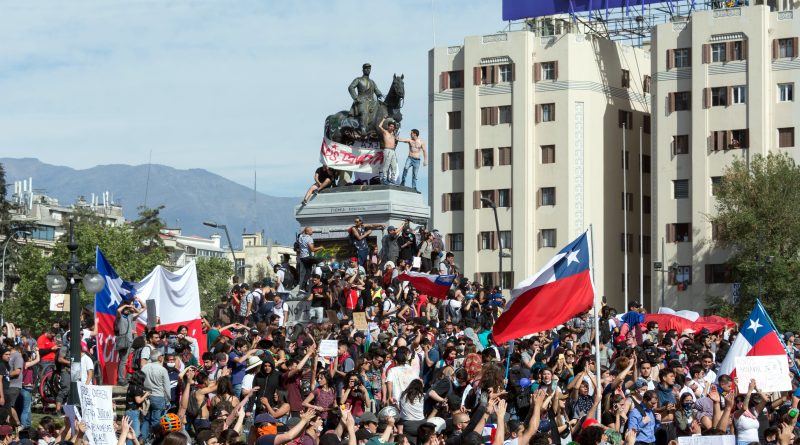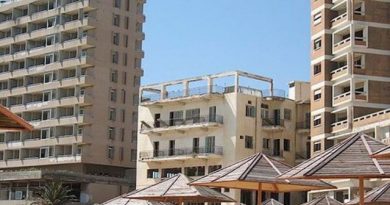Unrest in Chile Continues
Samuel Adams
Staff Writer
The number dead in Chile’s sometimes violent anti-government protests has now reached 15, with the number detained by security forces standing close to 5,000, according to Al Jazeera. Protests began last week following the passage of a controversial bill that would raise metro prices, transforming into a larger call for change.
As protests grew, so did the qualms they were addressing; with many protesters demanding a solution to the country’s extremely high levels of wealth inequality. Chile, the fifth-largest economy in Latin America, is also one of the most unequal countries in the Organization of Economic Cooperation and Development, a group of the world’s most advanced Western economies, reports BBC News.
Protests began last weekend in the capital, Santiago, over the proposed metro price hike before spreading to other large cities, including Valparaíso and Coquimbo. On Sunday October 20, rounds of protests escalated to clashes with riot police, prompting authorities to enforce a night-time curfew as well as declaring a state of emergency.
Under the state of emergency, government military forces were deployed to the streets for the first time since the despotic rule of Augusto Pinochet in 1973. The Guardian reports that over 10,500 troops were deployed in Santiago and across six other cities; Interior Minister Andrés Chadwick was quoted as saying that there had been 70 “serious events” as of late Sunday evening, including 40 instances of looting.
Following the clashes on Sunday, President Piñera defended his implementation of a state of emergency, speaking from a military base in Santiago. “We are at war with a powerful enemy, who is willing to use violence without any limits,” the President said in a nationwide television address. Responding to the comments, head of National Security General Javier Iturriaga, said “To tell you the truth, I’m not at war with anyone. I’m a happy man.”
Protesters defied the state of emergency as tens of thousands descended on cities across the country to continue their protest, at times clashing violently with police.
In an effort to quell the protests that continued Monday and Tuesday, President Piñera announced a series of reforms including a minimum wage, new tax bracket, and pension rise. The President said the reforms were “concrete and urgent steps,” according to Al Jazeera. The president also issued an apology to protesters for the current and previous administration’s inability to address Chile’s underlying problems.
Many across Chile lambasted the concessions as not enough, since they have failed to satisfy the protesters. “Today we’re protesting all of our discontent against these politicians who have been fooling us. The raise in the subway fare was just the straw that broke the camel’s back,” Italo Tarsetti, a protester, told The Associated Press.
Demonstrations continued as students and trade union members led continued protests directed towards the government. Tensions seemed to take a turn for the worse as a group of far-left politicians confronted the Interior Minister over numbers of casualties, injuries, and those detained, according to Al Jazeera. This confrontation comes on the heels of reports and photos circulating on social media claiming excessive force and indiscriminate violence by police and military forces.
Protests did not lose any momentum heading to the end of the weekend, with organizers on October 25 calling for “The Largest March in Chile” reports Reuters. Additionally, traffic slowed to a crawl as drivers protested rising toll costs on the country’s highway system, bringing much of Chile to a standstill as protesters on foot continue to organize without a leader or political party.
Many shops and schools remained closed out of fear of more clashes. Santiago’s security is now completely under army control as the city braces for a weekend of demonstrations. To solve the crisis, dialogue between protesters and the government seems to be a necessary step to bring any substantive change.


